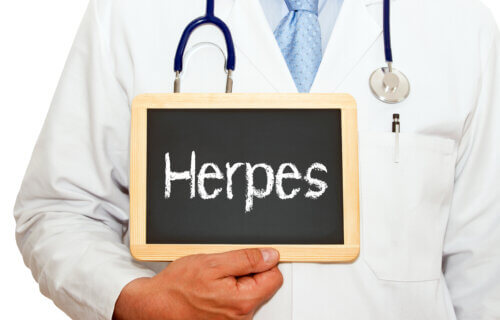CHICAGO — Scientists are one step closer to stopping herpes reinfections. A new mouse study by scientists in Chicago has identified a key protein important in viral reinfections. By targeting the protein with antiviral drugs, the chances for reinfection would decrease.
The heparanase protein is found in all our cells. In mice, researchers blocked this protein and stopped its activity. Blocking the protein prevented cloudiness in the animals’ corneas after a second infection of the herpes simplex virus type 1 compared to mice whose heparanase protein was acting normally.
The reason is that the herpes infection activates the protein. This, in turn, alarms the immune system that there is an intruder compromising our health. While fighting off an infection, it can make the symptoms worse during a second infection. What’s more, with heparanase malfunctioning, viruses are more likely to cause serious disease in people with a previous infection of a particular virus. This could increase the risk of developing complications such as ulcerative disease and blindness in the case of HSV-1.

Looking at herpes, one hypothesis the team had for preventing reinfection was stopping the heparanase protein from activating in the first place.
“We wanted to know if we could better protect them from infection, and we found that we could,” explains Chandrashekhar D. Patil, a visiting scholar in the Department of ophthalmology and visual science at the University of Illinois Chicago and co-lead author of the study, in a media release.
The findings could also extend to other infectious diseases as well. Understanding the mechanics of reinfection could provide more clues as to why some people are prone to reinfections. Previous research has found a link between heparanase protein and COVID-19 reinfections.
The next step in this research is figuring out what antiviral drug works best at inhibiting the heparanase protein. However, scientists are already calling this discovery a breakthrough in the fight against the herpes simplex virus. About 3.7 billion people worldwide under the age of 50 have oral herpes.
“This could be the wonder drug down the road,” says Deepak Shukla, the Marion Schenk Esq. professor of aging eye research at the University of Illinois Chicago and the corresponding author of the research study. “We could be looking at a broad spectrum antiviral drug.”
The study is published in the journal Science Advances.
What is herpes simplex virus type 1?
Herpes simplex virus type 1 (HSV-1) is a highly contagious virus that primarily causes oral herpes, a common infection affecting the mouth and surrounding areas. It is also known as oral herpes, cold sores, or fever blisters. The virus is a member of the Herpesviridae family and is closely related to herpes simplex virus type 2 (HSV-2), which primarily causes genital herpes.
HSV-1 is usually transmitted through close personal contact, such as kissing, sharing utensils, toothbrushes, or towels. The virus can also be spread through contact with infected saliva, skin, or mucous membrane. Upon initial infection, HSV-1 can cause painful blisters or sores on or around the lips, mouth, gums, or throat. The virus can also cause less common symptoms, such as fever, muscle aches, and swollen lymph nodes.
After the primary infection, HSV-1 remains dormant in the body’s nerve cells and can reactivate at any time, leading to recurrent outbreaks. These recurrent outbreaks are generally milder than the initial infection and can be triggered by various factors, such as stress, illness, hormonal changes, or exposure to sunlight.
There is no cure for HSV-1, but antiviral medications can help manage symptoms, reduce the frequency and severity of outbreaks, and lower the risk of transmitting the virus to others. It’s important to maintain good personal hygiene and avoid close contact with infected individuals to prevent the spread of the virus.
You might also be interested in:
- Common infections like herpes and chickenpox linked to poorer brain health during old age
- Herpes cold sores date back 5,000 years to the beginning of ‘romantic kissing’
- New drug may be a cure for both COVID-19 and herpes

